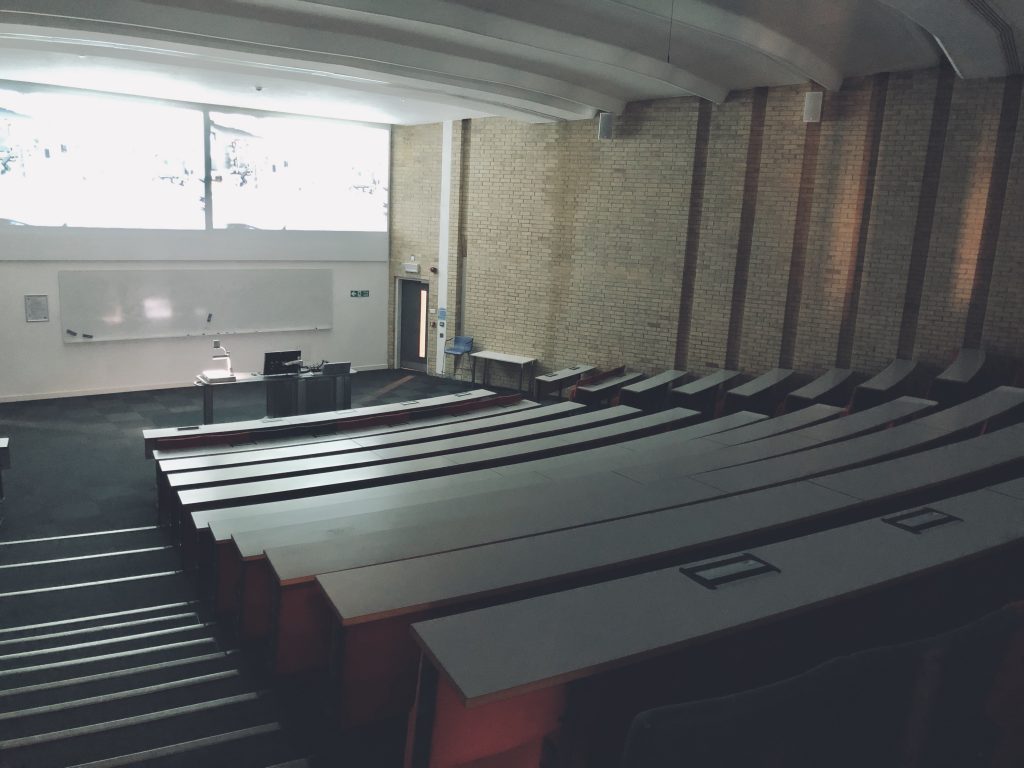By Sean (Student blogger: MSci Hons Computer Science)

“Kaleidoscope of loud heartbeats under coats
Everybody here wanted something more,
Searching for a sound we hadn’t heard before”
Taylor Swift – Welcome to New York
The thing is, you don’t really know what to expect. Be it the Big Apple or the much smaller Lancaster University, we tend to look through gold-tinted glasses when we arrive somewhere for the first time. This is especially true during pivotal moments of change within our lives, like our first meal alone as an adult, or our first steps into the first room we will live independently in.
During Michaelmas, everything is exciting and seems to lure you in. While the second-and-third-year students trudge through their daily routines, you’re dancing through the North Spine at the thought of finally being able to enjoy a Subway footlong every day. Nights out are crazy adventures with your mates instead of long overdue stress relief outlets, and workshop activities tend to be fun rather than headache-inducing.
I think it’s extremely important to play your cards well during Michaelmas.
Not necessarily right, but well.
I do feel many miss out on making the most of the first term. It’s the term where you have the most time and freedom but when you are also the most malleable. If you take advantage of it, you’ll find yourself growing in ways you won’t be able to forget.
Here is a list of, in my opinion, five most important things to do or start making a habit of during the Michaelmas term:
- Attend Welcome/Fresher’s week
Welcome week or Fresher’s week is your golden ticket to a well-rounded taste of university life. You get your course introduction, course facilities tour, orientation and initiation events and best of all: hauls of free stuff. The freebie and society fairs are the best targets, with things ranging from amazon prime trials to bicycle seat covers to GLOW nightclub member cards on the table, up for grabs. In fact, if you play it savvy and hop from event to event (especially your college events), you’ll find there isn’t a need to spend any money on food in the first week due to the opportunities to grab meals at events.
Aside from freebies, the other major benefactor of welcome/fresher’s week is how it helps you settle in. From ‘meet your course-mate’ events and course inductions, you’ll find a few buddies, which does make your first lectures feel a little nicer. Within your block or flat, your fresher’s reps join you on nights out while looking after and having fun with you. This is one of the few times everybody in your block is free, so make use of that to have a good time and get to know each other.
- Try talking to people
Like many others, I found myself quite intimidated by the looming idea of being tossed into a sea of new people and being expected to talk to them. However, the monsters turned out to be just trees: during welcome/fresher’s week, nobody knows anybody. People tend to be more open and willing to make conversation because everybody wants to meet new people and make friends. I talked to people in queues, in cafes, at events and made quite a few friends; and it wasn’t as scary as I made it out to be. Give it a go – I promise people won’t hiss at you.
- Join a society
Honestly, you might end up not attending all of your societies by 2nd or 3rd term. Nevertheless I still think this is a great idea, as you get to connect with like-minded people, and if you find something you really like, you’ll end up meeting a group of people you can vibe with who might end up being good friends. The first few society meetings tend to be free, so if there’s any time to join one, this is it.
- Get the ball rolling (academically)
Go to class. You really don’t want to fall behind or miss out on what are the most basic levels of your course, especially if your course requires a strong foundation. I made the mistake of skipping or not paying attention in a lot of my earlier lectures, and felt the effects later on when challenging coursework came in. It’s surprisingly easier if you take it step-by-step and just remember to keep up with your lecture notes every week.
- Learn to adult
Unfortunately, you don’t have the luxury of home-cooked meals or having your laundry magically do itself anymore. You’re an adult now and you have to learn to do things on your own from cleaning your room to sorting out your finances. Given its introductory nature, Michaelmas is undeniably the best time for you to get a grip of “adulting”. Get to know your way around campus. Learn to cook a few meals – some fancy and some fast. Get the hang of the public transport systems so you don’t get stranded in town one night. Show yourself what you can – and can’t do.
I hope this helps you get a vague idea of a game plan for the first term. Don’t fret if you’ve missed out on a few opportunities- you still have plenty of time and many more to come. Just make sure you’re doing whatever you can, whenever you can, and stay as happy as you can be.
Good luck – and welcome to Lancaster University!








